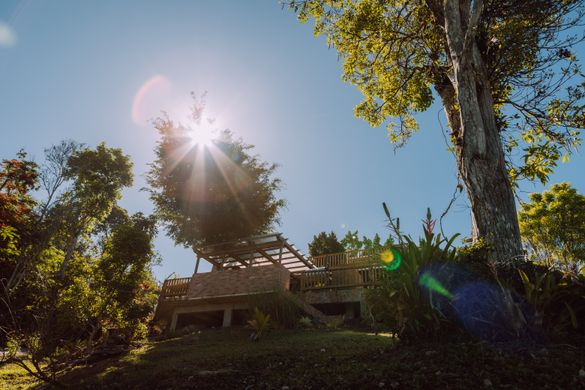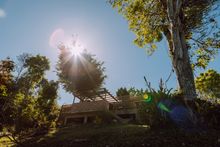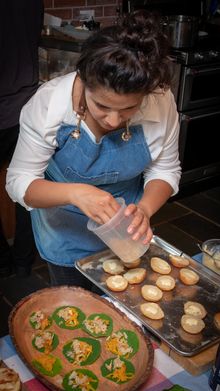 13 Apr 2024
13 Apr 2024
Tags: Farm To Table, Sustainable Travel, Discover Puerto Rico, Puerto Rico

As an Island that traditionally imported around 80% of its food, Puerto Rico was forced to re-adjust after Hurricane Maria affected many of its ports. As such, the now burgeoning farm-to-table movement was born. Utilising local ingredients, the farm-to-table scene represents an exciting cultural and culinary shift, opening up doors for local and organic growers to showcase their produce and for chefs to take advantage of Puerto Rico's finest ingredients. In terms of production, the Island's fertile soils, climate and aquatic resources result in an excellent quality of produce and is a true testament to the Island's natural assets.
For those looking to experience the farm-to-table scene first hand, El Pretexto in the scenic Cercadillo mountain community in Cayey serves as the first culinary farm stay in Puerto Rico. Made with love and dedication, the women-owned business boasts three private wooden lodges, an agroecological farming area, free-range organic chicken and duck coops and a range of culinary pop-up experiences. Popular with both residents and travellers alike, regular dinners take place on a long communal table with panoramic views of the Cordillera Central, the mountain range that crosses Puerto Rico from west to east. In addition to producing many of her own ingredients, from duck and chicken to eggs, pumpkins, cucumbers, and ginger, El Pretexto owner Crystal Díaz solely employs local residents of the Cayey community to work at this unique destination.
Alternatively, near San Juan, the culinary laboratory Oriundo is dedicated to a responsible consumption of ingredients that are part of Puerto Rico's archipelago biodiversity through the menu. Here, the owners integrate professionals from various disciplines to identify native and naturalised ingredients from their immediate surroundings, (like the hawthorne berry and the magpie shell) in order to preserve and propagate them. Another option for travellers is Finca Artesanal, a family farm that follows the practice of ecological agroforestry agriculture, or El Paraíso Agrícola de Aguas Buenas, where visitors can learn about the organic cultivation of pineapple and guava.
Family-run farm, Finca Gaia in Puerto Rico invites travellers to directly contribute to regenerative farming through its volunteer day program
Spanning 35 acres of natural forest in the Karst region of Dorado, Puerto Rico, Finca Gaia is an agroecological farm, boasting over 300 trees including 50 species of flora, 80 types of fruit as well as 15 exotic, 3 endemic and 37 native species. Dedicated to the preservation and regeneration of the Island's native landscapes and crops, the family-run farm project operates with a focus on agroforestry, forestry and horticultural crops. Expanding its reach in educating locals and travellers alike, the farm also runs a selection of eco-tours, including the popular volunteer day program. A space for learning and growth, this initiative invites visitors to learn about the farm's organic and sustainable practices, helping with the daily farm work such as preparing composting beds, harvesting the fruits that are in season and planting vegetables, herbs and trees for future growth. Hidden within the Island's lush natural forestry, Finca Gaia is a hub of culture and community where visitors can be part of the production of creating their own compost, fertilisers, insecticides and earthworm elixir while participating in other agroecological practices such as rainwater harvesting and the preparation of lasagna for planting.
Read how locals benefit here: https://www.fincagaia.com/quienes-somos



